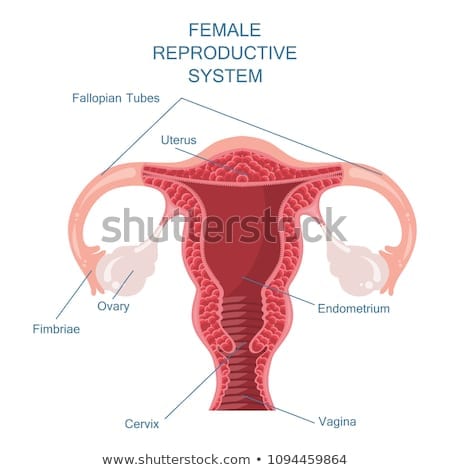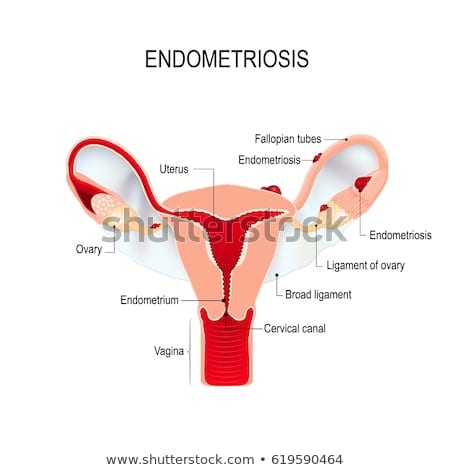
Introduction
10- 15% of the couples in the world are said to be troubled with conception. One-third of these cases are caused by the female partner’s fertility issues. The most common causes of female infertility can be attributed to problems with ovulation, damage to fallopian tubes or uterus, or problems with the cervix. Although difficult to diagnose, female subfertility can be cured by proper Ayurvedic treatments.
First, let’s get to know of the reproduction process happening within your body.

Ovulation or the Big O is the process of releasing a mature egg from your ovaries on monthly basis. Signalled by the reproductive hormones, one of the ovaries releases an egg. Once released it travels down the fallopian tube and make it available for fertilisation.
Incoming sperms meet the egg within the fallopian tube and fertilize it. Fertilized egg travels down to the uterus cavity and starts growing on the uterus wall. During this period the uterus wall grows a tissue lining to facilitate the growing of fertilised egg. If no fertilisation occurs, uterus casts off its lining. This lining consists of tissues and blood and exists through the vagina. This is called menstruation or period.
Causes
● Ovulation defects – These can be caused by reproductive hormonal issues or defective ovaries.
● Damage to fallopian tubes – Damaged or obstructed fallopian tubes keep sperm from getting to the egg or block the passage of the fertilized egg into the uterus.
● Uterine problems – Uterine abnormalities can affect impregnation and childbearing capabilities.
● Abnormal cervical mucus – Cervical mucus is a fluid generated by the cervix that allows sperm to survive in the hostile environment of the vagina. Abnormal cervical mucus can prevent sperm from reaching the egg.
Risk factors that may account for subfertility

● Smoking – Smoking can damage your fallopian tubes and cervix. Also, it can deteriorate your ovaries and deplete the eggs count prematurely.
● Sexually transmitted diseases – STDs such as chlamydia and gonorrhoea can affect your fallopian tubes.
● Overweight/Underweight – Getting into a healthy body weight increases your chances of consistent ovulation.
● Alcohol – Heavy alcohol use may affect ovulation.
Types of Female subfertility diseases

● Polycystic ovary syndrome (PCOS) – Caused by an imbalance of reproductive hormones which can cause ovulation problems and irregular menstrual cycles.
● Hypothalamic dysfunction – Is a condition where Hypothalamus is unable to produce hormones that trigger ovulation.
● Premature ovarian failure – Premature malfunction of ovaries before the age of 40.
● Hyperprolactinemia – A benign tumour in the pituitary gland in your brain which overproduces the hormone prolactin that would decrease the level of estrogen.
● Pelvic inflammatory disease – An infection of the uterus and fallopian tubes due to chlamydia, gonorrhoea or other STDs.
● Pelvic tuberculosis – Causes tubal infertility which hinders the proper movement of fertilised eggs into the uterus.
● Endometriosis – The tissue that supposed grow inside uterus grows outside of it.
● Fibroids or myomas – Common in the uterus. Some can block fallopian tubes or interfere with implantation, affecting fertility.
● Cervical stenosis – A narrowing of the cervix, can be caused by a birth deformation or damage to the cervix.
● Ovarian cysts – Cysts in the ovary can cause pelvic pain. They also can interfere with the normal process of ovulation.
Symptoms / Signs

Symptoms for women subfertility can be diagnosed before the marriage. Since many of these diseases are associated with ovulation and hormonal imbalance. It is better to identify any complication as soon as possible.
● Too long (Over 35 days), Too short (Under 21 days), painful, Irregular or non-existent ovulation/period.
● Abnormal periods causes heavy or lighter bleeding than the normal amount.
● Lack of libido (sexual desire), the growth of hair under the chin, lips on the chest and weight gain can signal a hormonal problem.
● Pain during sex can signify some ailment in your cervix area.
● Pain during urination or intense pain in the pelvic area (lower part of your torso).
If you have any such symptoms consult a reputed ayurvedic doctor specialising in subfertility.

